Blacksad is a monumental piece of comics literature and co-creator Juan Díaz Canales was at New York Comic Con signing copies of the book and talking to fans, next to a booth promoting the video game version of his classic.

It was kind of surreal seeing the playable version of the book so close to the actual source material. The in-game animation looked like it had bounced off the pages that were being displayed just a few feet away, which speaks more about the wildly kinetic illustrations of the book and how they sometimes feel one panel away from animation. This shouldn’t come as a surprise to anyone considering Blacksad’s illustrator Juanjo Guarnido had previously worked with one of Disney’s satellite studios in France.
Blacksad is a very deep exploration of American culture in a series of self-contained stories, shooting straight from the 1950s and playing with different storytelling styles that range from noir to Jack Kerouac-like road trip stories, only in this case every character is an animal. The book’s approach to anthropomorphism is beautiful and it complements each style organically. It even forces the reader to consider specific American problems under a different mindset. This is what sets the series apart. Just picture human-like felines dressed in KKK robes trying to stop detective John Blacksad from breaking up their racist operations.
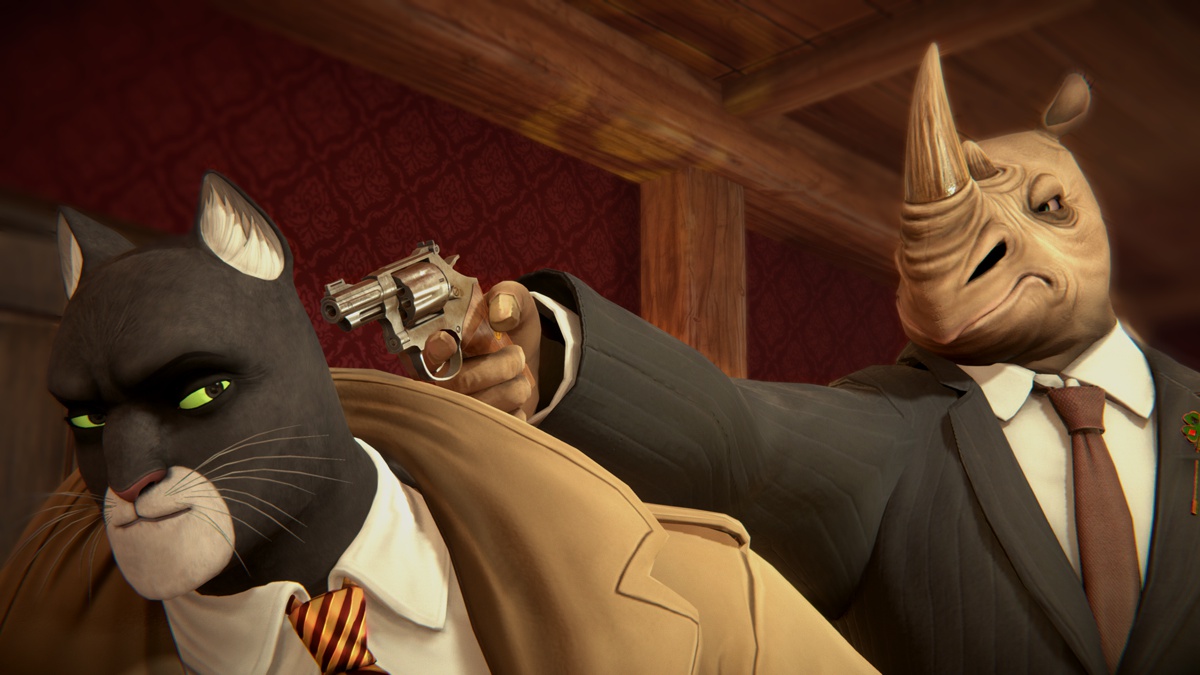
The series remains a best-seller for publisher Europe Comics (a 13-partner European comics alliance) and seems to be acquiring even more relevancy with each passing year. Watching and playing the video game version on the booth next to Canales’ signing table, then, was like witnessing a classic reassert its position to make it clear it can also adapt and keep up with the times. It’s a mighty impressive thing to behold.
The Beat sat down with Canales at NYCC to talk Blacksad, but also about Fraternity (2011), one of his more recent comics, which also dabbles in American history to tell a story about the frailty of utopias.
Ricardo Serrano: We’re sitting next to a couple of big screens showing the video game version of Blacksad. How does it feel watching your work, in motion and playable, up in those screens?
Juan Díaz Canales: It’s interesting because the developers have been sending us new scenes and trailers and story beats, and to watch it all grow is quite something. We’ve had a lot of input in terms of the voice actors, in English, Spanish, and French, and how they fit into the world and the sound of the story.
Serrano: Were you worried about any particular story element not migrating well into the video game version?
Canales: You’re always a bit worried before meeting the team behind the project, if they’ll get the idea and capture the scope of the story. But after we see the early designs and concepts in play we were taken by it. There’s still a feeling of surprise, perhaps shock. It’s a change in medium, from comic to video game, but once you see the results you ease into it and you get to appreciate it.
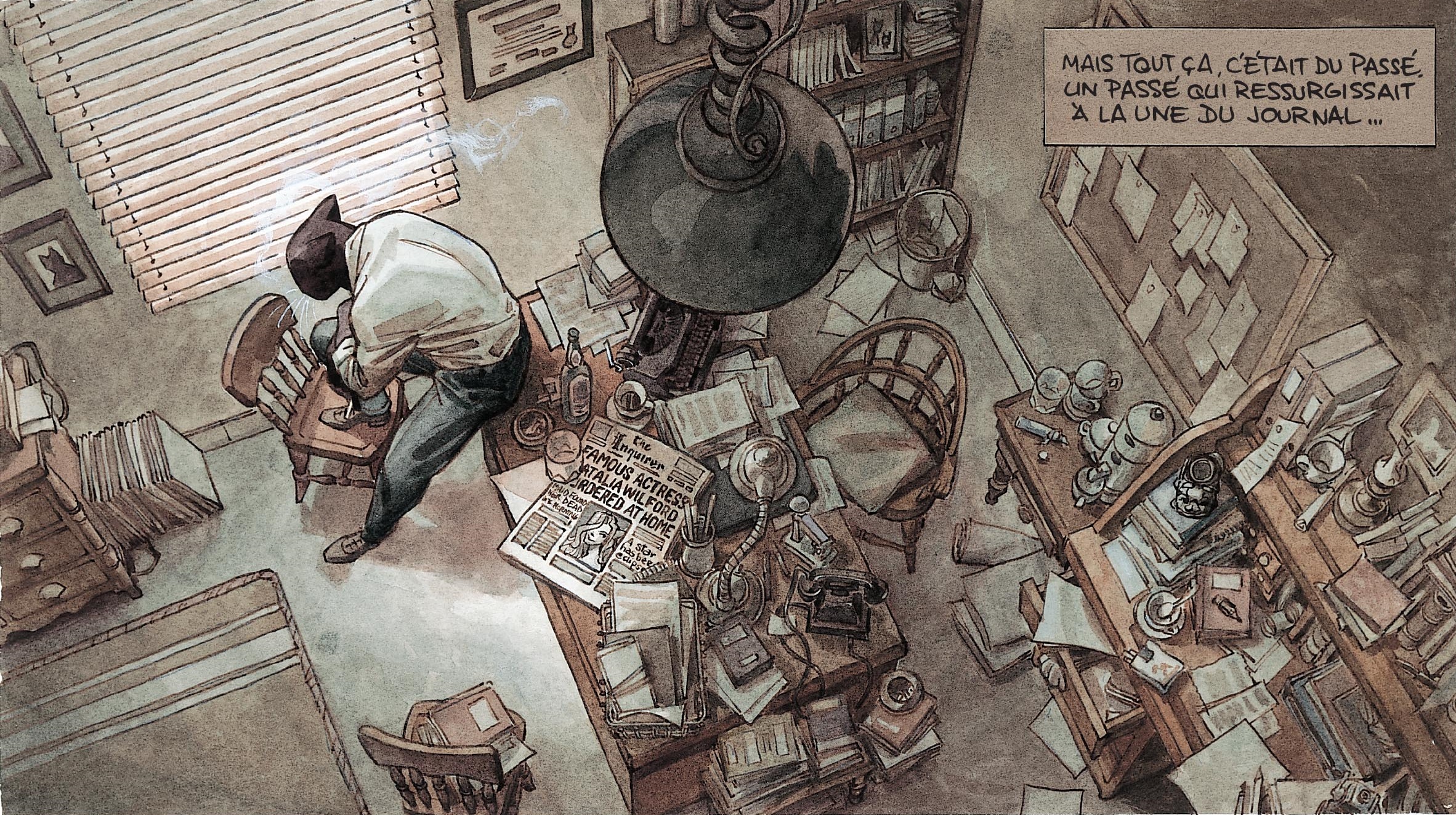
Serrano: Having played it for a bit, I felt it captured a lot of what works in the comic.
Canales: The fact they went with a graphic adventure style was a really good decision.
Serrano: Thinking about Blacksad through the years, its use of animal characters to explore American history, how do you think it’s managed to stay relevant in today’s world?
Canales: I think that the use of furry animals, which wasn’t something we came up with, is just a formula that works. It’s classic but it works. We mixed fables with noir, looked at black culture, and it made sense. People already respond well to the idea, as has been the case with other stories by other authors in the past. I think the more surprising element here is the mix of genres and it’s what keeps people coming back to the comic. Again, fables and noir together made the story stand out, I feel.
Serrano: Here in the US, a lot of readers first come into Blacksad through the English translation. It was first released in French and Spanish. Do you feel the English translation changes the feel or adds to the story, being that it takes place in America? Does it give it another dimension?
Canales: Not particularly. I mean, our experiences with the translations have always been good and, even though we were a bit scared because American culture is so well known—due to cultural colonization through media—and also liked by so many, we didn’t want to seem like impostors. Ours is the perspective of the outsider. We wanted people to understand what we’ve put in the comic, not to feel alien in it. The response to our translations, thankfully, has always been positive.
Serrano: As a social studies teacher myself, I appreciate how Blacksad approaches American culture with the intention of understanding it. It’s not about telling the history of the US. Rather, it’s about engaging with it. My students love reading parts of it in class. Do European audiences see it as such as well? As a way to understand American culture?
Canales: They do and it’s because American culture is universal, especially after World War II. They know it and they follow it, through film and literature. People are very familiarized with it. The themes we touch upon—the communist witch hunts, racism, nuclear fears—unfortunately are all problems still present today. Readers with their fingers on the media’s pulse will feel drawn to it because they still worry about these things.
Serrano: Yeah, it’s universal even. They’re problems we’re still trying to make sense of.
Canales: Exactly. Just open today’s newspaper and you’ll see what we were working through in our story. We’re still dealing with immigration, the destruction of our natural environment. One of the reasons we decided to start off Blacksad in the 1950’s was because it was a decade of change. Our world today resembles it quite strikingly. Our world looks more and more like world of the Second World War and its aftermath. It’s a world that knows it can destroy itself. It’s conscious of it. Media’s hold on today’s audiences is similar to that of the 50’s, where televisions were rising as the new communications standard. The 50’s were also the decade of triumphant capitalism, when the US took over the world in that regard.
Serrano: The way you articulate this point makes me think we’re somewhat back in that 1950s frame of thought where we’re still trying to make sense of our recent sources of information.
Canales: Exactly. It’s time going full circle.
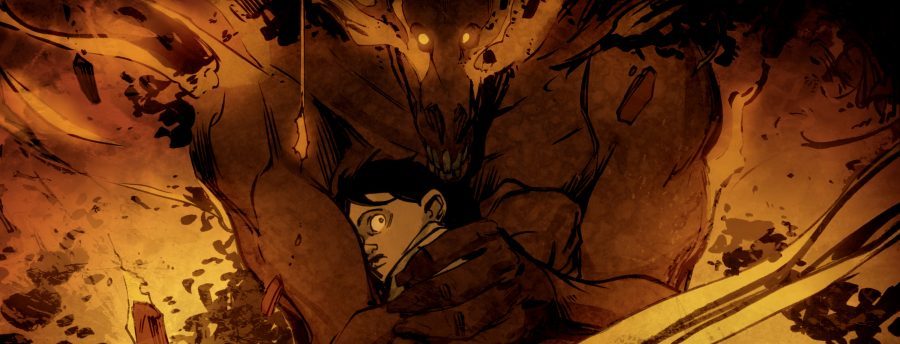
Serrano: Your book Fraternity feels different to Blacksad in many ways, but it still resorts to American history for some of its bigger story elements. What was the idea driving the story here?
Canales: What we were interested in the most, José Luis Munuera (Fraternity’s illustrator) and me, was the opposition between ideas and facts. This book tells the story of a group of very idealistic people that want to build a small utopia, a community, in the United States and are confronted by certain forces of nature that they can’t control. It’s reason vs. nature to a point. Ideals vs. facts, people with good ideas that can’t really turn them into actionable things. The story takes place during the American Civil War and is loosely based on true events. There’s a creature that adds to that sense of unpredictability in nature, but there’s also something about how people can’t manage to create a way of life that’s fair and reasonable.
Serrano: Did you take ideas some ideas from Blacksad while developing Fraternity or did you want to be something completely different?
Canales: I really wanted it to be different. Fraternity had some strong ideas already with its utopians in the middle of a war they wanted to avoid. But, I mean, it finds a connection with Blacksad in that it is based in the US as well and that there are certain racial elements in it. We have black soldiers interact with the utopians and we see how their skin color changes the dynamic.
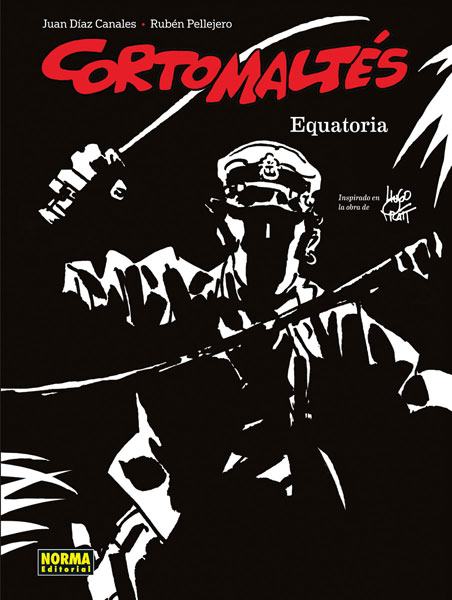
Serrano: What’s next for you in comics? Any projects you’re currently developing?
Canales: I’m currently working on Corto Maltese comics in France. I’m writing more stories for the character with Rubén Pellejero. We’re now working on the third book in the series.
Serrano: Thank you very much and it’s been an honor meeting you.
Canales: Thank you!
This interview was conducted in Spanish and translated into English by the same writer.


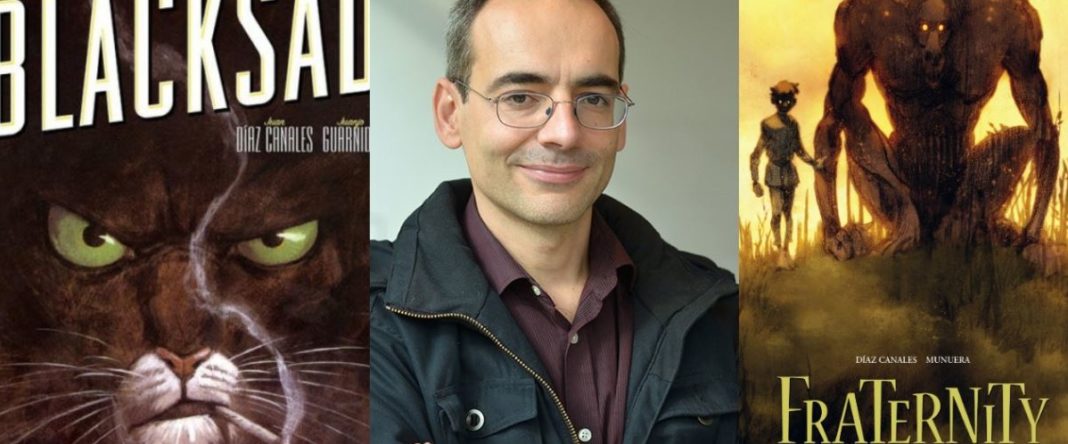
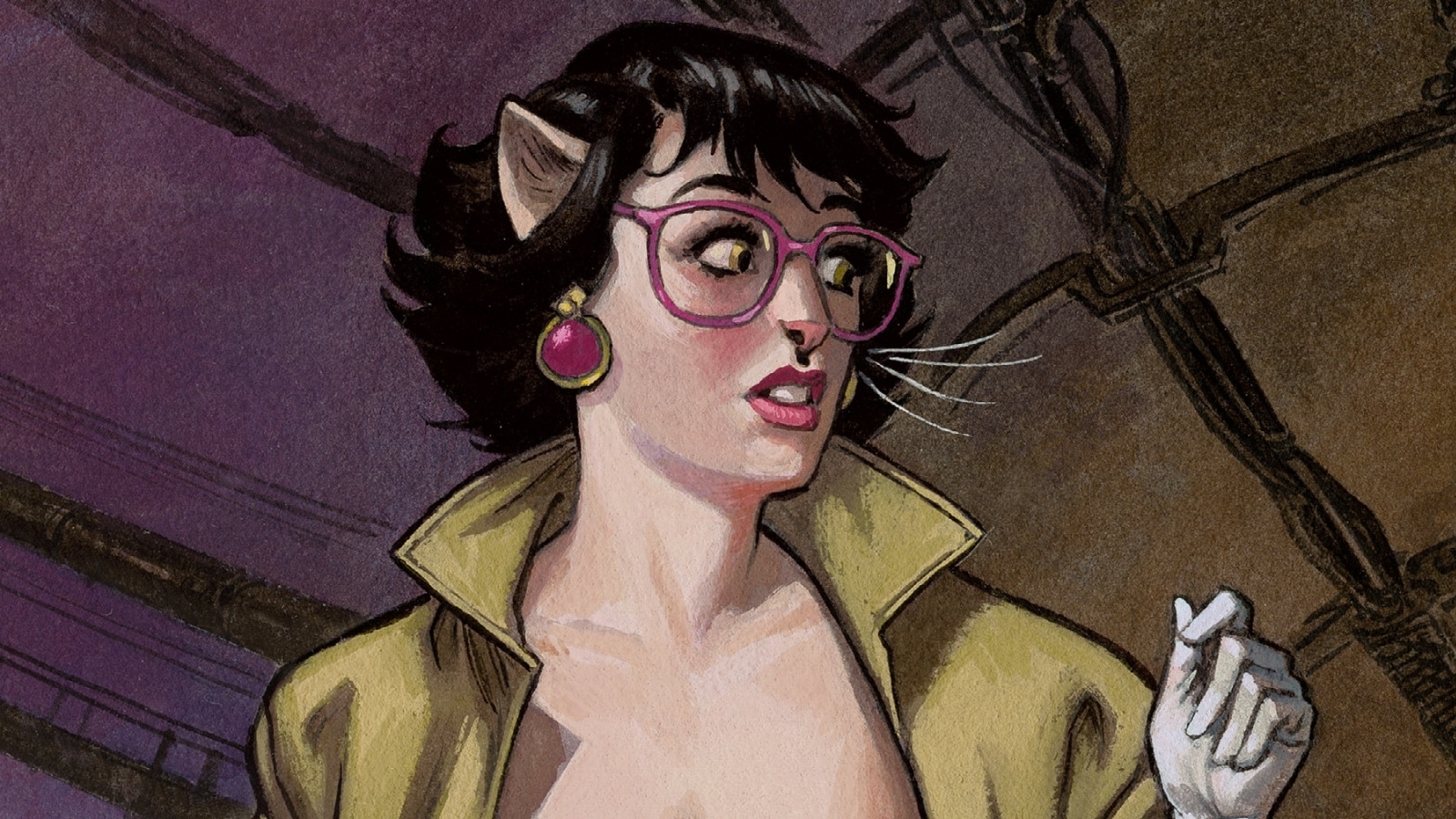

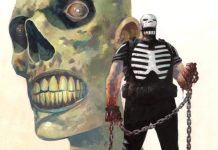



Comments are closed.